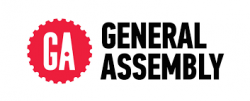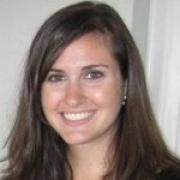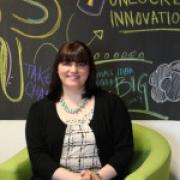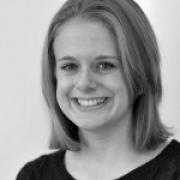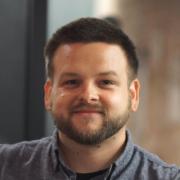Information Everywhere, Architects Everywhere
Our world is full of information. Whether we're using the latest mobile app, watching news unfold, or navigating our way through the District, information is all around us. With the ubiquitous nature of information, it's architected not just practiced by specialists, but by people holding all sorts of titles, from all walks of life.
On February 20, 2016, World IA Day DC will focus on sharing stories of information being shaped, organized, and shared by everyone from local technology companies to government innovators. We believe the power of similarity and the beauty of difference between these stories will inspire those who work in information architecture, as well as those who may be new to it.
Learn more: http://wiaddc.org/
Venue, parking and transit
Program/Schedule
We're very excited about this year's lineup of speakers—including an Unconference session where you get to present!
- 8:30 – 9:00 a.m. Registration and Breakfast
- 9:00 – 9:30 a.m. Opening Remarks
- 9:30 – 10:30 a.m. Session
- 10:30 – 11:00 a.m. Break and Sponsor Raffle
- 11:00 – noon Session 2
- Noon – 1:30 p.m. Lunch (on your own)
- 1:30 – 1:45 p.m. Midday Remarks
- 1:45 – 3:15 p.m. Session 3
- 3:15 – 3:45 p.m. Afternoon Remarks and Dispersing to Unconference Tracks
- 3:45 – 5:00 p.m. Session 4: Unconference
- 5:00 p.m. Happy Hour at Rural Society
Session 1: Mick Winters: Influencing Invisible Architecture
Mick Winters: Influencing Invisible Architecture
The “No UI” zeitgeist points us towards a future where information architecture expressed structurally and sequentially through a digital screen will become increasingly feel like the least attractive option for engaging with technology. You, the stalwart, seasoned, tempered IA with the proven process for creating great products should immediately question the firmness of the professional ground beneath your feet.
How best do we avoid this dark future where our skill set becomes rapidly obsolete? First, destroy all deliverables as the stand today and devote yourself to the mastery of conversation, not taxonomy. Second, embrace the notion that digital UIs serve only as a pathway to information gathering for making decisions and action taking, facilitating interpersonal communication, tools of creation, or access to entertainment. Finally, stop using the phrase “user experience” because you are imposing a self-limiting factor on your role and the value of your expertise.
Together, let’s explore how the No UI movement, the rise of artificial intelligence as nonlinear interface, and the return to an appreciation for just having a good chat will change the field of information architecture.
Mick Winters, Head of Bank Experience Design at Capital One
Mick started his career as a visual designer in advertising agencies and boutique design studios before pivoting to digital product information architecture and UX design. As a founding member of Capital One’s Experience Design team, Mick currently leads the effort to bring strategic aspirations into digital and physical form for the banks’ branches, cafes and ATMs.
Follow Mick on Twitter at @mickwinters
Session 2: Scott Stroud: Architects of Collaboration: How NPR Created A Culture of Innovation
Scott Stroud: Architects of Collaboration: How NPR Created A Culture of Innovation
From the original NPR.org website launch in 1997 to the release of the current NPR One listening app, the NPR Digital Media group has connected listeners with news, storytelling and music for over 10 years. How did NPR build a team and a culture that supports innovative product design? How has our approach changed over the years to increase collaboration? I’ll reveal how the organization transformed by opening the design process to include all team members, regardless of role. We’ll also consider how to architect and envision future products while making progress with current ones.
Scott Stroud, Lead UX Strategist at NPR
Scott has led major product interaction design challenges for NPR since 2006 using Agile, Lean UX and behavioral design methods. He is currently architecting a new responsive audio player for NPR.org.
Follow Scott on Twitter at @sstroud
Session 3: Sarah Brooks and Faz Besharatian: Practical Pitfalls Unraveled: Insights for the Growth-Seeking IA (Workshop)"
Sarah Brooks and Faz Besharatian: Practical Pitfalls Unraveled: Insights for the Growth-Seeking IA (Workshop)"
Your team has all the skills, you know what the next steps are, but your client forgot why they hired you. Or maybe you’ve been trying to evangelize to your internal bosses for way too long. We all know that the reality of IA work can be much different than what’s written in textbooks. In this session, we’ll talk about common pitfalls of current work environments and ways to overcome them. You’ll hear from the experts and have a chance to practice techniques in a small group setting.
Takeaways:
- Teaching your non-ux colleagues empathy and other inception tricks of the trade.
- Learning pragmatic ways to move your projects forward.
- Winning people over, despite the politics.
- Identifying when to use different workshop techniques to your advantage.
- Applying a multi-pronged approach to develop your team and advance your career.
Sarah Brooks, UX Designer and Career Coach
Sarah is a Professional and Life Coach and User Experience Designer based in Washington, DC. She works with people who want to create greater impact in their work while maintaining a healthy life balance. Sarah has successfully worked with individuals to start businesses, change sectors, lose weight, and accelerate their careers. Sarah is an affiliate and mentor coach with Accomplishment Coaching, a graduate of Brown University, and a two-time NCAA champion in rowing. Before becoming a coach Sarah successfully navigated multiple career transitions and has worked as a nonprofit program manager, event producer and consultant.
Follow Sarah on Twitter @sarahabrooks
Faz Besharatian, Consulting Designer at General Assembly
Faz instructed GA DC’s first UXDI course. He started his migration away from print design in 1996 and has been building digital experiences ever since. Throughout his design career Faz has worked for AARP, AOL, US Airways, USWeb/CKS, and others. Today he is an independent design consultant focused on product design for companies big and small.
Follow Faz on Twitter @faz
Session 4: Unconference
For 2016 World IA Day DC is trying something a little bit different. For the final sessions of the day, we’ll be riffing on the Bar-Camp Unconference model and letting WIAD DC 2016 attendees become presenters!
Presentations can be formal, informal, a demo, or anything else you come up with as long as it is no more than 15 minutes and keeps to the WIAD 2016 theme, “Information Everywhere, Architects Everywhere.” We’ll provide the screen and microphone; everything else is up to you!
This is a great way to incorporate more presenters into the WIAD DC schedule and gives us the ability to share exciting and up-to-the-minute sessions that might not make the program otherwise.
3:45 PM Unconference Session 1
Option 1: Keith Deaven, Emily Gartland & Margo Kabel: Critique UX Resources
- Explore the new GoodGovUX Decision Tree featured at World IA Day DC and take a (10 min) usability survey to make it even better!
- Watch the Video
Option 2: Dan Brown: First Things First: Crafting The Discovery Process
4:15 PM Unconference Session 2
Option 1: Rachel Weatherly: Know Your Audience: A Behavioral Approach to Audience Profiles
Option 2: Dana Solano: Psychogeography and IA
Option 3: Keith Deaven, Emily Gartland & Margo Kabel (The session has two spaces to allow for more testers!)
4:35 PM Unconference Session 3
Option 1: Stephanie Brown & Erin Gordon: Spark the Creativity: Graphic Facilitation and You
Option 2: Anthony D Paul: Digital Sketching with Remote Users, Client, and Peers
Option 3: Alejo Jumat: User Research in a Hospital Setting


